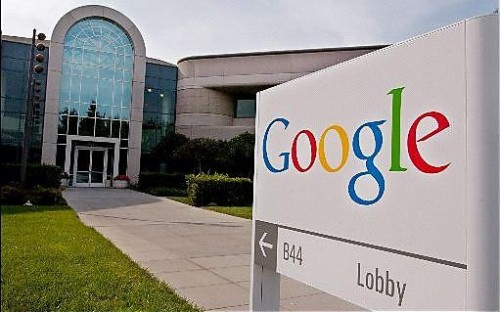Companies in consulting and technology sectors in particular, including Bain & Company, Google and Amazon, are poised to ramp up their hiring of business graduates.
A report by QS, an education and research firm, collected data from 33,000 employers and 46 leading European business schools to determine the return on investment of MBA degrees in Europe, and the strength of the MBA jobs market.
Employers value the full-time MBA more than any other postgraduate business qualification, according to QS, which also gathered the opinions of companies’ recruiters.
Julie Coffman, chair of Bain’s Global Women’s leadership Council, said the management consultancy firm would hire at least 400 MBAs in 2015. “We’ve got to hire talent to keep up with our growth, and so we expect to a have a gangbuster recruiting year,” she said.
“We’re in this for the long haul. We’re recruiting our future leaders,” she added. “They’re going to help create our innovative breakthroughs and our offerings. They’re going to keep people motivated and excited.”
From 1990 to 2012, worldwide employer demand for MBAs grew at an average compound growth rate of 15% a year, according to data compiled in a separate report by QS.
Europe is poised for a strong recruiting year once more, despite weaker economic growth.
QS data show that 85% of full-time European MBA graduates secured jobs within three months of graduating.
Kyle Ewing, head of global staffing programs at Google, said that the internet search giant values all levels of education, and that the company looks for MBA candidates with creativity and passion. “And a healthy disregard for the impossible,” he added.
“MBAs find plenty of opportunities to do cool things that matter, whether in product management, sales and finance, marketing, people operations, and everything in between,” he said.
The technology sector has been one of the most buoyant employment markets for MBA students in the past few years.
Companies including Microsoft and Google have sought to increase their business school recruiting, as the technology sector continues to enjoy global growth.
The percentage of MBA graduates who found jobs in the tech industry at the Tuck School of Business, based in the US, jumped 5% to 18% last year, up from 13% in 2013.
At Wharton School, nearly 14% of 2014’s MBA class were hired by technology companies, up from 11% the previous year and significantly higher than the 6% who went into tech in 2010.
At Michigan’s Ross School of Business, Amazon hired a record 27 MBAs in 2014, surpassing professional services firm Deloitte to become the cohort’s largest recruiter.
Miriam Park, director of university recruiting at Amazon, said in the QS report that the online retailer increased its MBA hiring by 25% in 2014.
In an interview with BusinessBecause last year, she said that MBAs are hired into roles such as product management and operations, along with rotational programs in retail and finance.
“We see MBAs thriving at Amazon because they love taking ownership of big projects and solving hard problems for our customers,” Miriam added.
American multinational conglomerate General Electric, which has businesses ranging from financial services to energy, continued to hire cadres of MBAs in 2014.
Heather Giese, who runs the rotational program which MBAs typically enter, the ECLP, said that about 60% of the 88 graduates hired in 2014 had MBA degrees.
She said that the ECLP is seen as the company’s sales and marketing leadership talent pipeline.
“Bringing external thought leaders and new-world skills [that have been] gained from five to eight years of industry experience, and masters programs, was a key parameter needed to satisfy our unmet hiring needs,” Heather said.
Ferdinando Beccalli-Falco, GE’s chief executive for Europe, recently told BusinessBecause that he values holders of MBA degrees because they have a certain amount of work experience. “Most of ECLPS have done very well,” he said.
“It [the ECLP] is a good path and we should continue to encourage this way of developing talent,” he added.
RECAPTHA :
5a
61
3c
38








